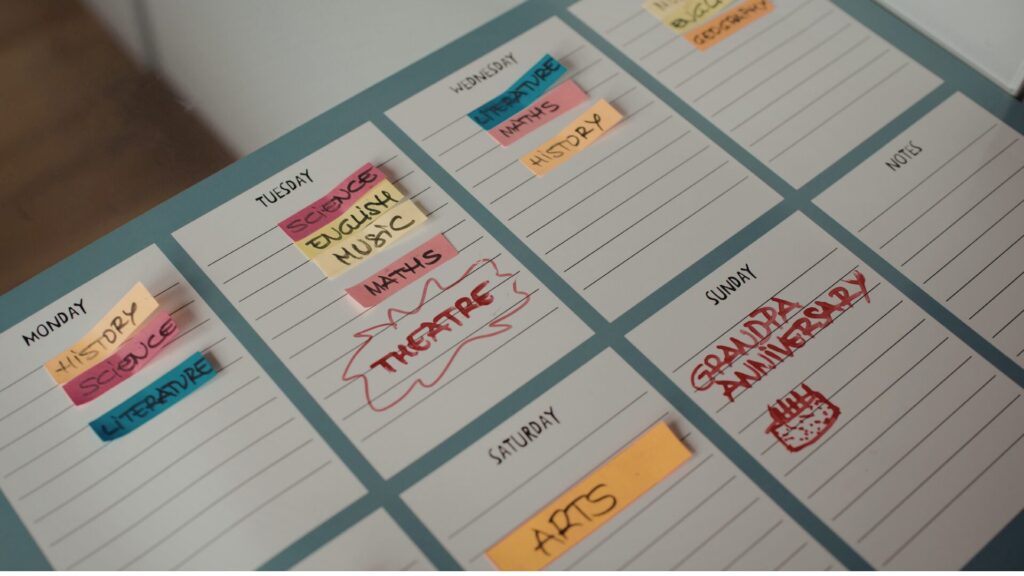You know that feeling when a friend notices you’re not yourself before you even say a word. Empathy skills help you create that same sense of safety for others.
Empathy skills are the abilities that help you understand someone’s emotions, read their perspective, and respond in a way that shows genuine care.
You’ll see how stories and shared experiences at our TED Summer School reveal the power of noticing, listening, and responding with that kind of caring attention.
Let’s explore how these skills shape your relationships, your learning, and your future.
What Empathy Really Means
Empathy is the ability to understand another person’s feelings from their perspective and respond in a way that helps them feel recognised. It’s the skill of stepping outside your own viewpoint long enough to see the world through theirs.
You see empathy in everyday moments, like noticing the frustration behind a friend’s short reply or realising they’re overwhelmed even when they insist they’re fine. Moments like these are where your empathy skills become clearer.
These small signals help you understand what someone is going through so you can respond with patience and clarity.
Research by Harvard Medical School psychiatrist Dr Helen Riess shows that empathy is more than a soft skill. Her work demonstrates that empathy is rooted in specific brain pathways, and that strengthening these pathways improves trust, communication, the quality of our relationships, and your overall empathy skills.
Empathy vs Sympathy vs Compassion
Empathy means understanding what someone feels from their perspective and recognising why those feelings matter. Sympathy is noticing their emotions without fully stepping into their experience. Compassion is choosing to take supportive action after understanding what they’re going through.
Here’s the difference in simple terms:
- Empathy: You feel with someone by understanding their emotions from their point of view.
- Sympathy: You feel for someone by acknowledging their emotions without sharing their perspective.
- Compassion: You act because of someone’s emotions by offering support or help.
Knowing which one a situation needs helps you communicate clearly, support others effectively, and avoid misunderstandings in everyday interactions.
4 Types of Empathy
You’ve probably noticed that you don’t connect with everyone in the same way. Sometimes you focus on what someone thinks, and other times you tune into how they feel. These differences show that empathy comes in more than one form.
Here are the different types of empathy.
1. Cognitive Empathy
Cognitive empathy is the ability to understand what someone is thinking and how they see a situation. It helps you make sense of their perspective so you can respond thoughtfully and develop empathy skills that support clearer communication. You use it in conversations, group work, and decision-making where understanding someone’s reasoning matters.
2. Emotional (Affective) Empathy
Emotional empathy is the ability to feel what someone else is feeling. It helps you pick up on their emotions instinctively, even when they do not say much. You notice it when a friend’s excitement lifts your own mood or when their sadness makes you pause and pay closer attention.
3. Compassionate Empathy
Compassionate empathy is understanding what someone feels and choosing to support them in a helpful way. It moves you from awareness to action. You use it when you check in on a friend who seems overwhelmed or offer practical help when someone is struggling.
4. Cultural Empathy
Cultural empathy is the ability to understand how someone’s background, values, and lived experiences shape the way they think and feel. It helps you respond with respect rather than assumption. You use it in diverse groups, international settings, and conversations where perspectives vary widely.
Why Empathy Is Important for Students
Empathy is important for students because it strengthens communication, reduces conflict, and helps you build more meaningful relationships. When you understand what someone needs, it becomes much easier to collaborate, share ideas, and create a positive learning atmosphere.
You rely on empathy in everyday situations. It helps you navigate tense group projects, support a friend who seems distant, or judge the right moment to speak in a busy classroom. These skills matter even more in academic settings where teamwork, clarity, and confidence shape your experience.
That is why empathy plays such a powerful role at our Cambridge Summer School, where you learn in historic colleges, meet peers from around the world, and practise communicating respectfully across different perspectives.
Empathy also supports your well-being. It helps you recognise emotions early, respond calmly, and build the kind of trust that makes daily interactions feel easier and more genuine.
Join the Immerse Education 2025 Essay Competition
Follow the instructions to write and submit your best essay for a chance to be awarded a 100% scholarship.

How to Develop Empathy Skills as a Student
Empathy grows through small, intentional habits that help you notice emotions, listen with care, and understand different perspectives. These habits strengthen your communication, improve your relationships, and make you more confident in complex social situations.
Here’s how you can develop empathy as a student.
1. Listen Actively
Think about a time when you spoke and someone paid such close attention that you felt your thoughts settle. Active listening creates that calm.
In his TEDx talk How to Actively Listen to Others, Scott Pierce shares the moment Miles Davis turned Herbie Hancock’s “wrong” chord into something beautiful. He uses it to show that listening is not waiting to respond but accepting what someone offers you.
When you tune into someone’s pauses, tone, and emotions, your understanding becomes clearer and your connection becomes stronger because your empathy skills sharpen in the process.
2. Ask Thoughtful Questions
You’ve probably noticed how a single well-timed question can make someone open up more easily.
Asking thoughtful questions shows that you care enough to understand their experience, not just the surface details. It means using simple prompts like “What was that like for you?” or “Can you tell me more?” to invite deeper insight. These questions help you move past assumptions and give the other person space to express what they really feel.
When you stay curious instead of leading the conversation, you build trust and create a more meaningful connection.
3. Practice Perspective Taking
Think about the last time you wondered why someone reacted differently than you expected. Perspective-taking helps you step into their viewpoint long enough to see the situation through their eyes.
Research by C. Daniel Batson shows that imagining how another person feels leads to greater empathic concern and more helpful behaviour than imagining how you would feel.
This small shift reduces misunderstandings and helps you respond with more clarity and respect. When you practise seeing the world from someone else’s angle, your communication becomes calmer and your relationships feel stronger.
4. Respond with Compassion
“Be kind, for everyone you meet is fighting a hard battle.”
Ian MacLaren’s words capture why compassionate responses matter so much. Responding with compassion means noticing what someone is feeling and choosing an action that genuinely supports them. It might be offering help, showing patience, or simply being present when they feel overwhelmed.
Compassion turns your understanding into something practical and comforting. When you respond with care rather than judgement, you help others feel safe, respected, and more willing to open up.
5. Learn from Stories
You’ve probably felt moved by a story that revealed someone’s struggles, hopes, or turning points. Stories help you step into another person’s world, which strengthens your empathy.
Reading novels, watching films, or listening to personal experiences gives you insight into emotions you may not have felt yourself.
At our TED Summer School, participants explore stories that challenge assumptions and widen their perspectives. When you pay attention to the feelings behind a story, you train yourself to recognise those emotions in real life. This makes your conversations more thoughtful and your understanding of others more genuine.
6. Reflect Regularly
Maria Li’s TEDx talk on self-reflection begins with a story about playing brilliantly in practice yet struggling in competition. Her point is clear: improvement doesn’t happen by pushing harder, but by pausing to understand what’s really going on.
Reflection helps you notice patterns, pressures, and habits you miss in the moment. You can take a few minutes to ask what worked, what felt off, and what influenced your reactions.
When you reflect this way, your choices become more intentional and your empathy for others grows stronger.
The Benefits of Empathy
Empathy strengthens the way you communicate, collaborate, and build relationships. It helps you understand what someone is feeling, respond with clarity, and create trust in moments that matter.
These benefits shape your daily interactions and support your personal growth as your empathy skills become more intuitive.
- Stronger communication – Empathy helps you read emotions accurately, choose your words carefully, and avoid misunderstandings.
- Better teamwork – When you understand different perspectives, group work becomes more productive and respectful.
- Deeper friendships – Empathy helps you connect on a more personal level and support others when they need it.
- Reduced conflict – Seeing a situation from someone else’s point of view makes it easier to stay calm and resolve issues peacefully.
- Improved well-being – Empathy fosters a sense of belonging, which boosts confidence and emotional resilience.
Common Barriers to Empathy for Teenagers
Empathy can feel easy at some times and difficult at others, especially when school, friendships, and pressures pile up. These challenges don’t mean you lack empathy; they simply show where awareness can help you grow.
Here are the most common challenges.
Stress, Anxiety, and Social Pressure
Stress and anxiety can narrow your focus to your own worries, which makes it harder to notice what others are feeling. When deadlines, exams, or friendship issues pile up, your brain shifts into protection mode.
A systematic review by Jonas Nitschke and Jennifer Bartz, published in Neuroscience & Biobehavioral Reviews, found that acute stress can block emotional contagion and change how people process others’ emotions.
This means that in highly stressful moments, empathy is still there, but you may struggle to access it until you slow down and reset.
Cognitive Biases
Cognitive biases can quietly shape how you interpret someone else’s actions or emotions. When your brain takes shortcuts, you might jump to conclusions, assume intentions, or misread situations without realising it.
Biases like confirmation bias (where you notice things that support what you already believe and overlook anything that doesn’t) or the halo effect (where one positive trait leads you to assume lots of other good qualities) can make you focus on what you expect to see rather than what is actually happening. When you pause and question these automatic thoughts, you create space for a clearer, more accurate understanding of others.
This helps your empathy stay grounded in reality instead of assumptions and strengthens the empathy skills you rely on in everyday interactions.
Miscommunication in Digital Spaces
You’ve probably sent a message like “Sure thing” or “It’s fine” and realised later that someone read it as cold, annoyed, or dismissive. Without tone, facial expressions, or pauses, even ordinary phrases can feel harsher than you intend.
Online chats, texts, and group messages remove the emotional cues your brain relies on to understand meaning. When those cues are missing, people fill in the gaps with assumptions, often based on their mood, not yours.
Taking a moment to clarify, add context, or switch to voice or video can prevent misunderstandings and keep your connections steady.
Emotional Overload or Excessive Empathy
You may have had moments where someone’s stress or sadness felt so heavy that you carried it long after the conversation ended.
Professor Jolanta Burke’s work on excessive empathy explains why this happens. When you absorb too much of another person’s emotions, your body reacts as if the stress is your own, which can lead to fatigue, anxiety, or emotional overwhelm.
This is why setting boundaries and practising compassion, rather than absorbing every feeling, helps you stay supportive without losing your balance. Healthy empathy cares for others while still protecting your well-being.
Cultural Misunderstandings
You might say something as simple as “I’ll handle it later” and mean it calmly, yet someone from another background might hear it as dismissive or annoyed. Cultural empathy helps you catch these hidden differences.
In his TEDx talk on cultural differences, Benjamin Rascon-Gracia explains how being “Mexican at home” – speaking Spanish, following Mexican customs, and living by his family’s values – and “American at school”, with a very different set of expectations, led to constant misunderstandings until he learned to see through both cultural lenses at the same time.
When you stay curious and let people explain what something means in their world, small confusions can become genuine points of connection.
How Empathy Builds Real Connection in Daily Student Life
Empathy shapes the way you communicate, collaborate, and handle everyday challenges. It helps you understand what others need in the moment, making your relationships smoother and more supportive. Here’s how it shows up in different parts of your daily life.
- In Friendships – Empathy helps you notice small shifts in a friend’s mood and respond in ways that make them feel understood and valued.
- In Group Work and Class Discussions – Empathy helps you recognise when someone feels unheard and encourages you to create space for their ideas.
- In Dorms and Shared Spaces – Empathy helps you adapt to different routines, address tension respectfully, and build a comfortable shared environment.
- In Online Classes and Group Chats – Empathy guides you to choose clear, respectful language and check in when someone suddenly goes quiet.
How Empathy Prepares Students for University and Future Careers
Empathy becomes a powerful advantage as you step into university life and competitive career pathways. It helps you work confidently with classmates from diverse backgrounds, communicate clearly with tutors, and handle increased academic pressure with maturity.
In future careers, employers value empathy because it improves teamwork, leadership, and ethical decision-making, especially in roles that rely on trust and sensitive communication. This is especially true in medicine, where understanding how someone feels is just as important as understanding their symptoms.
At our Medicine Summer School, you explore this balance through hands-on medical simulations, critical discussions, and guidance from experienced practitioners who teach you how compassionate listening supports better clinical outcomes. You also dive into core medical concepts, practice problem-solving, and learn how real-world healthcare teams collaborate.
These experiences build your confidence, deepen your self-awareness, and prepare you for the emotional and intellectual demands of university-level study and future professional environments.
The Power of Understanding Others
Empathy skills help you understand others with confidence and clarity. They shape the way you listen, respond, and build trust with the people around you.
These skills support your growth at school and prepare you for the rhythm of university and future careers. They help you stay grounded in fast-moving environments.
Empathy also strengthens your sense of purpose. It improves how you connect, how you lead, and how you navigate challenges.
If you want to explore these ideas further, our TED Summer School offers inspiring sessions that help you develop your voice and deepen your understanding of others.





















